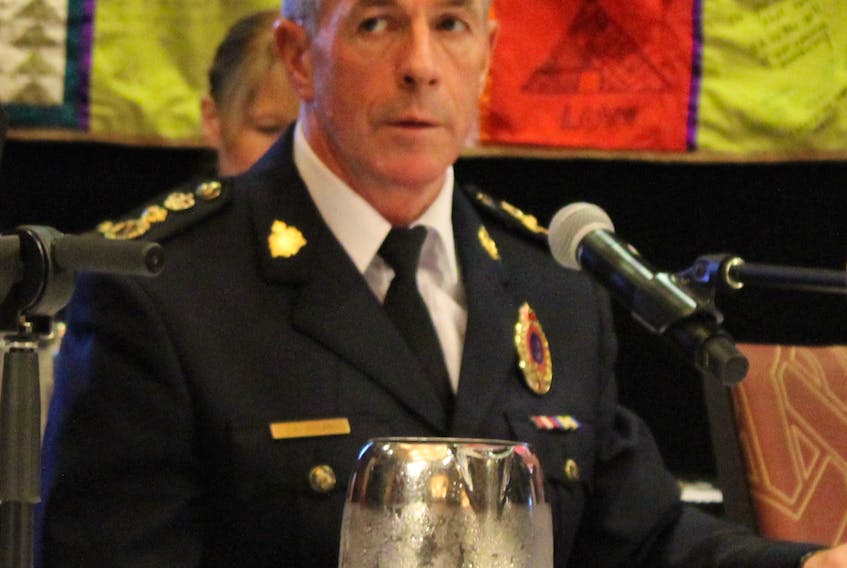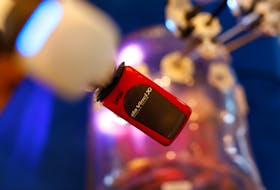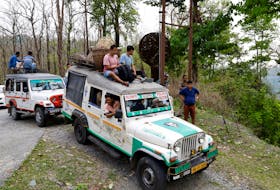Day 1 of the National Inquiry into Missing and Murdered Indigenous Women and Girls hearings in St. John’s saw an exploration of the conflicted relationship between Indigenous populations and police authorities.
Perhaps the most common ongoing theme on the first day of hearings was the relationship between Indigenous populations and police, specifically the lack of trust between the two. A lack of trust has led to underreporting of crimes against Indigenous peoples, because Indigenous populations fear what they will face when they do come forward.
Sisters Carolyn and Neenie Landry came from Nova Scotia, representing the Native Council of Nova Scotia, to witness the hearings.
Carolyn Landry says racism within police forces across the country toward Indigenous people has historically been a big issue, and the problems remain today.
“What I’ve heard so far is that there needs to be a lot of work done with government and our police force to understand Indigenous people,” she said.
Neenie Landry says the relationship needs to be rebuilt collectively.
“Being Indigenous, as a person, we don’t want to take it forward to anyone else because we’re scared — I’m only speaking for myself — but we’ll get fingers pointed at us, that racism,” said Neenie Landry.
“It’s embedded in us, the trust issue.”
Royal Newfoundland Constabulary (RNC) Chief Joe Boland says he understands why there is a lack of trust between Indigenous populations and police forces, but he outlined a number of initiatives the RNC has taken to try to mend the divide.
A year-long initiative, for one example, sees the RNC contacting indigenous populations across the province to attempt to recruit more Indigenous people to become police officers.
“When residents lose confidence in our police service, they respond by refusing to report crimes to the police. This leaves our residents and communities more vulnerable and empowers perpetrators to continue and even escalate their criminal activity,” said Boland, reading from a prepared statement.
“The RNC, as a police culture, is in transition. I firmly believe we are headed in the right direction, though I recognize that lack of trust has developed and been sustained over many years and will take time to remedy.”
Carolyn Landry says the national inquiry is a good first step.
“There’s hope. This is a good forum to show that. People are willing to learn and to listen and to move forward. I think we really need to do that,” said Carolyn Landry.
“We have to do it together.”
Healing continues
Amelia Reimer of the St. John’s Native Friendship Centre and St. John’s Status of Women’s Council is working with the inquiry as a health officer, providing any support needed to those attending the inquiry. She’s been to Halifax and Happy Valley-Goose Bay hearings in the role.
As much of the testimony can relate to personal trauma, Remier says it’s important to have people on hand to help a person who’s been brought back to a traumatic moment.
“We’re looking out for anybody who’s been triggered. That’s bringing a glass of water, or some tissues, or stepping outside for a chat, or taking them over to the elder’s room, where there’s some medicine and other ceremonies,” she said.
Reimer says the experience of helping others through their most difficult moments has taught her the power of personal connections.
“Personally, on my journey, it helps me to help others. This is a huge opportunity to help others,” said Reimer.
“There’s so much that can be said of just sitting with someone, holding their hand, letting them cry, letting them talk. There’s a lot of power in that.”
The hearings continue until Thursday at the Sheraton Hotel in St. John’s.
Twitter: DavidMaherNL









